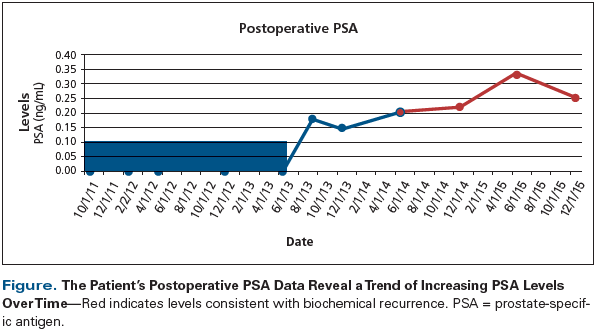PSA increases with age primarily because of increase in prostate size and age-adjustment of PSA is a means of accounting for this size increase with age. If your PSA is rising but doesnt quite reach these definitions your doctor might initiate further testing to assess the risk that cancer has come back.
The reason they go up as you age is not related to prostate cancer actually but to a disease called benign prostatic hyperplasia or BPH.
Does psa rise with age. PSA can go up with two very common prostate conditions benign prostatic hyperplasia BPH and inflammation of the prostate prostatitis. Prostate-specific antigen or PSA levels tend to increase with age according to the National Cancer Institute. The effect of BPH on the bladder and urinary tract can cause inflammation infection UTI both of which can increase PSA levels.
People who are more than 50 years. A persons risk of high PSA levels may increase with age. The use of age-specific reference ranges might address several shortcomings of the PSA test.
Currently a single demarcation between normal and elevated PSA values 40 ngmL is used as an indication for biopsy among men of all ages. Because of this some doctors have suggested using age-specific PSA reference ranges as a screening tool for prostate cancer although these ranges have not been adopted as of 2015. The larger your prostate the higher the PSA.
As you get older your prostate slowly enlarges and your PSA gradually increases. For instance at age 40 a PSA of 25 is within the normal limit but by age 60 the limit can go up to 45 and by age 70 up to 65. PSA levels may increase with age and potential with age-associated BPH.
It is recommended that men abstain from ejaculation for 48 hours prior to having a serum PSA. A PSA score may also be considered abnormal if it rises a certain amount in a single year. PSA bounces typically occur between 12 months and 2 years following the end of initial therapy.
1-3 PSA can even go up after having sex or riding a bicycle. PSA tends to increase as men age. However recent studies have questioned the value of PSA velocity in predicting a finding of prostate cancer from a biopsy.
The median PSA for this age range is 06 to 07 ngml. Ejaculation causes a significant increase in the serum PSA concentration in men between 49 and 79 years of age that may persist for up to 48 hours. Prostate cancer pictured also becomes commoner with increasing age.
For men in their 60s. Many elderly men live a normal lifespan without the need. Age specific reference ranges.
For example if your score rises more than 035 ngml in a single year your doctor may recommend. High PSA levels can also be caused by ejaculation or vigorous exercise. Even without any prostate problems your PSA level can go up gradually as you age.
A man can have an elevated PSA level without having any prostate problems often due to the PSA levels gradually increasing with a mans age. This change appears to correlate with age and baseline PSA. There is no specific normal level of PSA in the blood by age and levels may vary over time in the same man.
Other conditions can trigger a high PSA result. Although most doctors would consider a PSA of less than 4. A PSA score greater than 40 ngml is considered abnormal.
This does not mean that they have active prostate cancer. At age 40 a PSA of 25 is the normal limit says John Milner MD a urologist in the Chicago area. Enlarged prostate common in older men can increase the levels of total PSA.
PSA velocity measures how fast PSA levels have risen over a period of time. In general the higher a mans PSA level the more likely it is that he has prostate cancer and a constant rise in a mans PSA level over time may also be a sign of prostate cancer. Patients may have benign prostatic hyperplasia which is a non-serious age-related condition or a urinary tract infection UTI which is easily treated.
By the age of 90 years almost all men will have microscopic areas of tumour in the prostate. Current guidelines suggest that a PSA level between 1. A persons PSA levels tend to increase slowly with age.
2 PSA is measured in nanograms per millimeter ngmL. But a rapid rise in PSA may indicate the presence of cancer or possibly an aggressive form of cancer. A PSA level goes up with prostate cancer but it also goes up with age.
PSA levels do increase with age in fact there have been age adjustments made to PSA levels that take this into account. The normal range is between 10 and 15 ngml.

